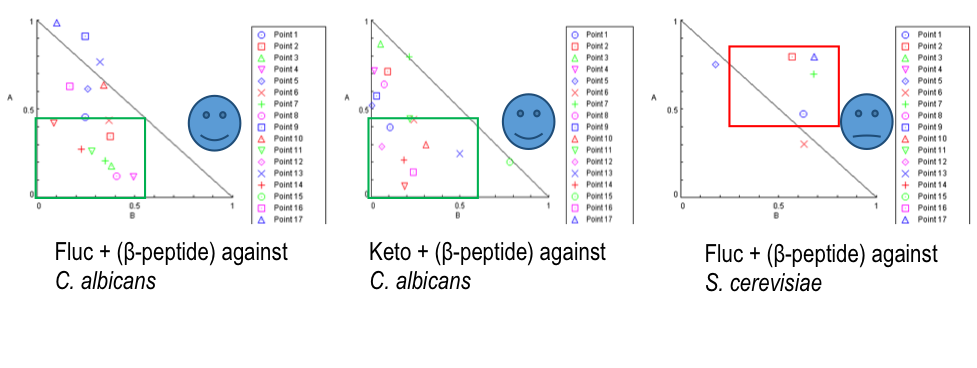Combination treatment with synthetic β-peptide enhances the antifungal activities of azoles in Candida albicans
Fungal infections such as candidiasis represent an important human health concern worldwide due to high mortality rates, of more than 50%, specifically in those people who are immunocompromised. In particular risk are those patients undergoing chemotherapy, that suffer from AIDS and those who receive an organ transplant. Other concerns include the side effects of the current antifungal drugs and the emergence of multidrug resistant organisms. Current approaches to antimicrobial treatments have employed combination drug therapy to enhance the efficacy of antimicrobial agents. Antimicrobial β-peptides, a novel material that mimics naturally occurring antimicrobial peptides, have been found to interact synergistically with azole-containing antifungal drugs. The figures above show isobolograms representing the effect of a combination treatment of C. albicans with a model β-peptide and two commonly used azole drugs (fluconazole and ketoconazole). Our experiments demonstrate that inhibitory concentrations of the combination treatments are lower than those of the agents alone in the case of C. albicans. Interestingly, this effect is not observed in the case of Saccharomyces cerevisiae. These results are a promising alternative to the development of new treatments for fungal infections.



